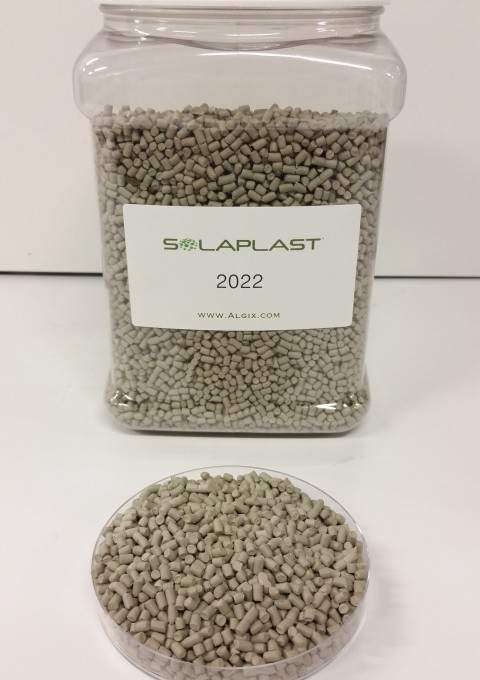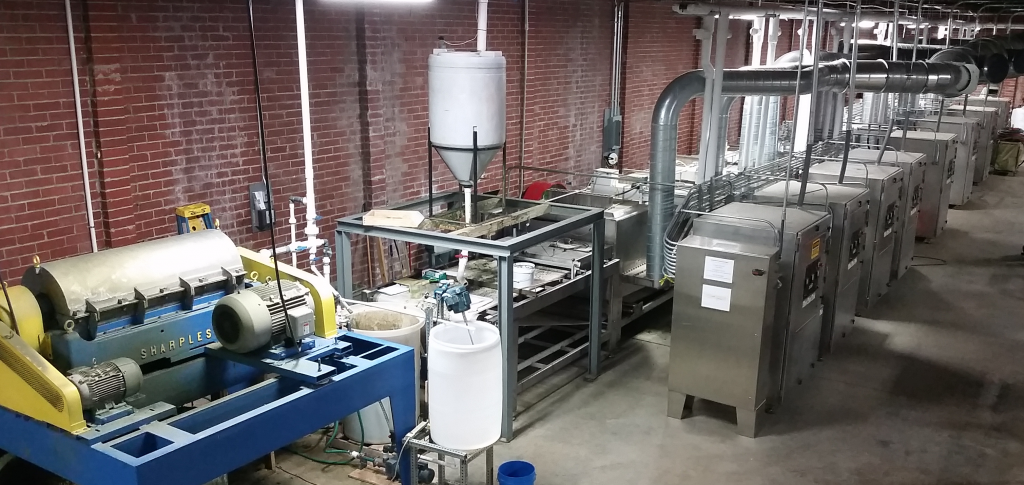As the Earth slowly implodes due to massive man-made destruction, the human race is rushing to find sustainable solutions to prop up this once beautiful ecosystem. Though it may be near impossible to reverse the effects of climate change, a new social structure may be emerging that takes advantage of nascent technologies to form the foundation for less wasteful, more thoughtful ways of living. Among these technologies is 3D printing, which could, one day, provide the basis for a decentralized, local manufacturing network. Throw in sustainable energy and materials and 3D printing could become a self-sufficient method for making goods. A new joint venture between filament manufacturer 3D-Fuel and clean tech company ALGIX hopes to play its part in this ecologically-friendly future with a new algae-based 3D printing feedstock called Algae Fuel.
This is no garage operation. To produce their bio-plastic composite filament, the venture utilizes a number of different facilities that transform algae, currently thriving in natural bodies of water due to excess pollution, into 3D printing material. With their ALGENT Facility in Alabama, this algae is harvested and dried before heading to the Solaplast facility in Mississippi, which jet mills the algae into uniform, micron-sized particles at 3 tons per hour. Then, using the Entek twin screw extrusion compounder, the material is turned into pellets for later extrusion via a single screw extrusion system. On top of all of this, the Solaplast plant has an R&D division and a suite of equipment for exploring new bio-plastic projects, as well as ensuring the quality of their products. In other words, these companies seem to know what they’re doing.
The first Algae Fuel product available for purchase is a PLA composite made up of 20% algae biomass, but ALGIX has a long list of materials made up of up to 50% algae. Their pellet list includes algae-based Polypropylenes, Ethyl-vinyl Acetate, Polyethylenes, Polystyrenes, and Poly butylene Adipate terephthalate. For that reason, ALGIX seems like an excellent partner for 3D Fuel. Matthew Stegall, co-founder of 3D-Fuel elaborates, “Our Joint Venture with ALGIX opens an entirely new realm of possibilities for us and the 3D Printing market. We are producing high quality filaments, exceeding the typical industry standard. With our efforts being focused on environmental friendliness, some of the exciting product lines we will be introducing to the market in the coming months have the ability to completely change how users of 3D Printers view their printing materials and their impact on the environment. We are positioned to become the company that is not only setting the standards of quality for printer filaments but setting the standards in how those materials impact the world we live in.”

Michael Van Drunen, CEO of ALGIX, seems to believe that 3D Fuel aligns with his own companies vision, saying, “We saw 3D Fuel as an emerging leader in this industry who wanted to add a more earth friendly filament to its core product offering, which we are able to provide through our Solaplast algae filament and sustainable business practices. Both companies commitment to excellence in both manufacturing and research and development was a clear indicator that our Joint Venture would be a huge success. With our core values being very synergistic, we know our customers will see the difference in not just our product offerings, but the principles in our business practices that we bring to the 3D printing market.”
In addition to offering algae-based filament, 3D Fuel also began offering a product Fuel In a Box, a method for feeding 5 or 20 kg dispensing box. More importantly, 3D Fuel is hoping to work with other eco-filament manufacturers to better enable the growing sustainable filament movement, beginning with reShootz, which plans to recycle old DVDs and CDs into new 3D printing materials. Stegall explains, “Our mission is to create a synergistic group of like-minded and sustainability focused firms called the Green Alliance whose core competencies include biodegradability, recyclability and sustainable business practices.”
I hope that these two companies really do practice what they preach, as the more eco-minded companies that sprout up, the better for everyone on the planet. If you believe in the mission of 3D Fuel and ALGIX, you can contribute to their social media campaign by posting a video describing why sustainability is important to you on your social media feeds with the hashtags #greenismyfavoritecolor #algix #3dfuel, as well as sending it to [email protected].




